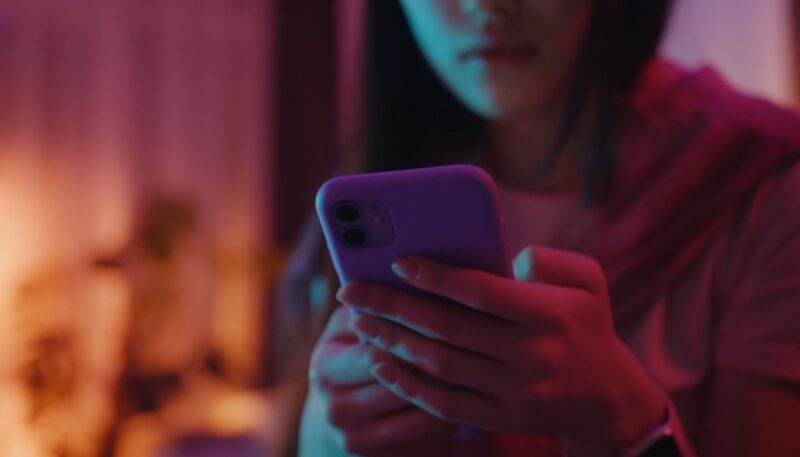Platforms like Instagram, TikTok, and Facebook are not just spaces for socializing and entertainment; they also serve as mirrors reflecting back highly curated images of what bodies should look like.
These virtual environments are saturated with idealized portrayals that often do not align with reality, setting a bar that is not only high but, in many cases, unattainable.
This discrepancy can lead to significant emotional and psychological challenges for young people, who are in a critical stage of developing their identities and self-esteem.
What happens online affects how we feel offline

Social media often portrays idealized lifestyles, creating unrealistic expectations. Teens frequently compare themselves to these flawless images, feeling inadequate if their lives or bodies don’t measure up. The chase for likes and comments can become a yardstick for their self-worth. Unfortunately, these digital validations often lead to self-doubt and a distorted view of one’s body.
The continuous stream of perfect images can intensify feelings of isolation and alienation when one’s reality doesn’t align. These platforms rarely showcase the struggles and imperfections that everyone faces, further skewing perceptions of ‘normal.’ The fear of missing out (FOMO) exacerbates these feelings, making teens feel like they’re the only ones not leading perfect lives.
Real Effects of Virtual Feedback
- The pursuit of approval: Likes and comments become a measure of popularity and acceptance. Lack of engagement can trigger feelings of rejection. When posts don’t receive the expected attention, it can feel deeply personal, as if the community is directly disapproving of the individual. This dynamic can lead teens to alter their online persona, sacrificing authenticity for approval. The pressure to maintain a certain image can become a relentless pursuit, affecting mental health and self-esteem.
- Impact of negative comments: Cruel or insensitive remarks about appearance can deepen insecurities, leading to sadness and increased stress. These comments can linger in a person’s mind and influence how they view themselves in the mirror each day. They can also lead to social anxiety and a reluctance to participate in real-life social situations for fear of judgment. The impact is often magnified because the digital world lacks the empathy and context of face-to-face interactions.
- The double-edged sword of positive feedback: While praise can lift spirits, reliance on such feedback for happiness and self-esteem is risky. This dependency creates a fragile sense of self that is vulnerable to the whims of public opinion. It also encourages a cycle of continuous content creation aimed at garnering approval rather than self-expression. When the expected praise is not forthcoming, it can lead to profound disappointment and questioning of one’s value.
Mental Health Foundation studies highlight that a large number of teens feel dissatisfied with their appearance due to social media influences. Some may even adopt harmful practices like reducing food intake to alter their body shape to fit perceived standards of attractiveness.
These behaviors not only endanger physical health but also reinforce harmful stereotypes about beauty and body types. The internalization of these ideals can persist into adulthood, affecting long-term well-being and self-acceptance. The constant comparison to an unattainable standard can keep teens perpetually anxious and dissatisfied with their appearances.
The influence of influencers

Influencers on platforms like Instagram and TikTok showcase often unattainable beauty and fitness goals. Their influence is potent but can inadvertently set unrealistic standards that are hard for most teens to meet. These portrayals can contribute to negative body image and pressure teens to achieve similar looks, sometimes at the cost of their health.
Influencers may inadvertently encourage extreme dieting or rigorous fitness routines that are not suitable for all body types or ages. The polished and edited content creates a myth of perfection that is nearly impossible to replicate in real life.
The focus on aesthetics can diminish the value placed on other qualities like intelligence, kindness, and creativity, leading teens to believe that appearance is paramount.
How excessive social media use affects teens
Long hours spent scrolling through platforms like Facebook correlate with reduced self-esteem and lower overall life satisfaction. The continuous exposure to curated perfection leads to a cycle of comparison and dissatisfaction among teens.
This virtual cycle can cause significant distractions from academic and personal development pursuits. It can also lead to sleep disturbances, as teens stay up late scrolling through feeds, leading to decreased overall well-being. The lack of genuine, supportive interactions on these platforms can amplify feelings of loneliness and depression.
How to take control?

Breaking away from social media helps teens reduce the urge to compare themselves constantly with others. Here’s how taking a break can make a big difference:
1. Reduced stress
Less time online cuts down exposure to stressors like comparison and negative feedback. It also limits the bombardment of information and stimuli that can overwhelm the senses and lead to decision fatigue. The mental space cleared by stepping away from social media is often filled with more mindful, fulfilling activities.
2. Improved self-perception
Detoxing helps teens appreciate their real lives and can improve mental health and self-image. It encourages a more accurate self-assessment that isn’t skewed by the impossible standards often set on social media. This improved self-perception can foster greater resilience against external pressures.
3. Focus on enjoyment
Time off screens allows teens to rediscover and engage more deeply in activities they love. This can lead to a renewal of passion for hobbies and interests that might have been overshadowed by online activities. Engaging in real-world activities provides tangible achievements that boost self-esteem and happiness.
Addressing Body Dysmorphic Disorder (BDD)
BDD is a severe anxiety disorder where an individual is obsessively concerned with their appearance, often perceiving flaws that are minor or non-existent to others. It can lead to dangerous behaviors like extreme dieting. BDD often accompanies other mental health issues such as depression and anxiety, complicating treatment and recovery.
According to Katharine A. Phillips the disorder can be isolating, as individuals may avoid social interactions for fear of judgment about their looks. Treatment requires a multi-faceted approach involving psychological therapy, medical treatment, and support from loved ones. Early intervention is crucial to prevent the escalation of symptoms and to improve outcomes.
How Cognitive Behavioral Therapy (CBT) helps
CBT is a therapeutic approach that deals with problematic thinking patterns to address various psychological issues:
- Identifying negative thoughts: CBT helps individuals recognize and address destructive thoughts that affect their feelings and behaviors.
- Thought challenging: By challenging negative thoughts, CBT encourages more positive and productive thinking.
- Behavioral changes: This therapy also promotes actions that lead to better mental health and well-being.
All in all…
Instead of focusing so much on likes and followers, I encourage shifting the focus to your own interests, talents and relationships. True confidence comes from who you are, not how many people double-tap a photo. Spend less time scrolling and more time engaging in hobbies you find meaningful or that bring you joy.
If you do use social platforms, follow accounts that inspire you in a positive way. Surround yourself both online and off with people who appreciate you for who you are.

